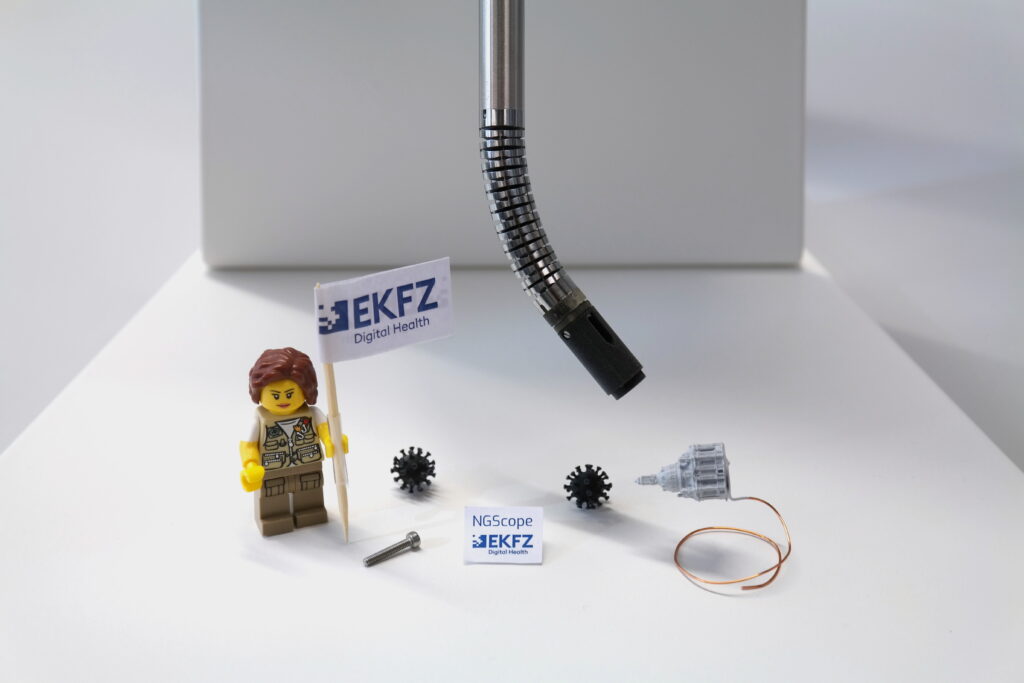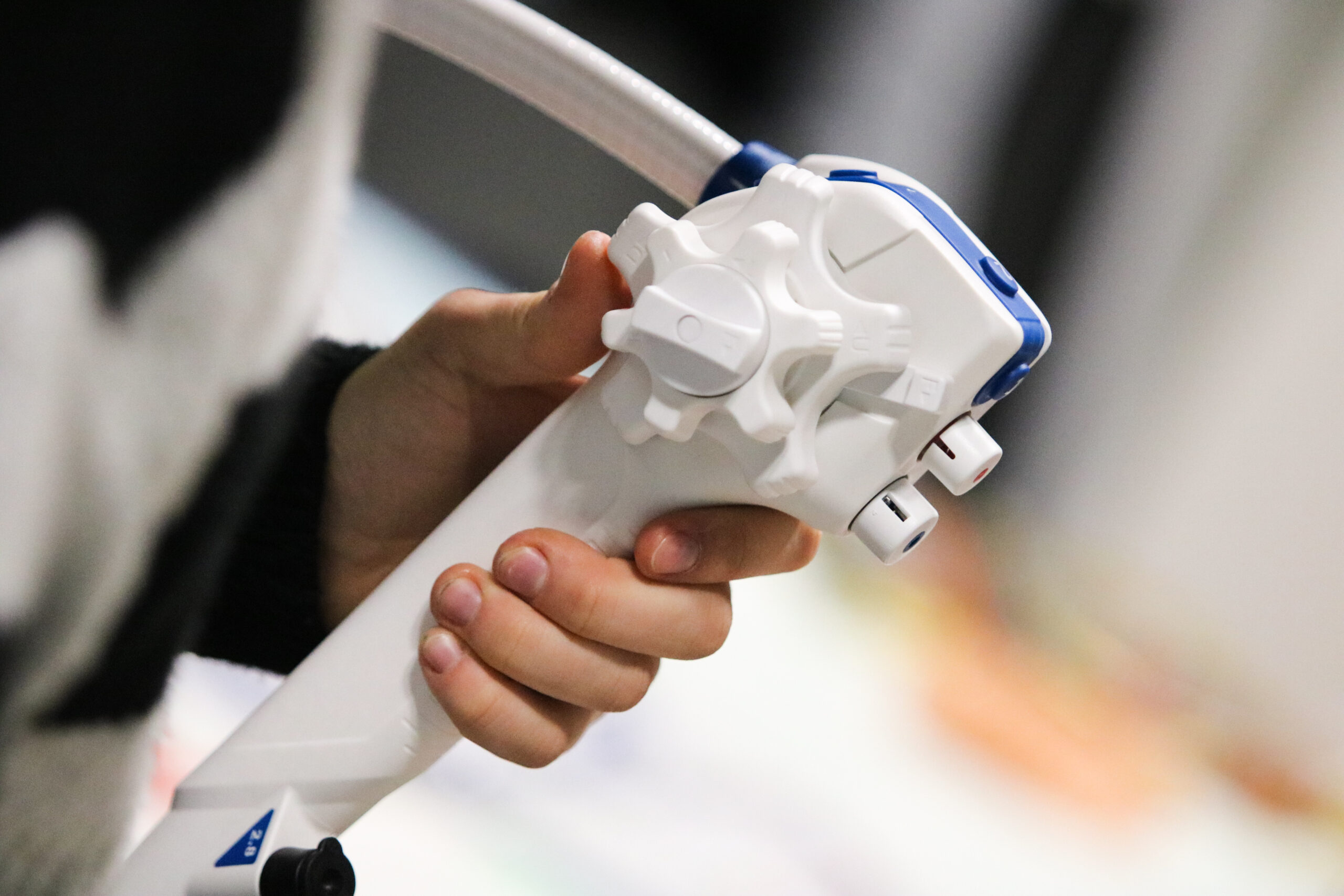Gastrointestinal endoscopy has revolutionized the diagnosis and therapy of gastrointestinal diseases. Over the past 40 years, however, the design and functional principle have remained virtually unchanged, as have the limitations of endoscopes and endoscopic tools: Mechanical control by long Bowden-cables leads to low precision of movement, an extended dead point at joint zero position, mechanical deterioration, and eventual failure with prolonged use. Furthermore, heavy and cumbersome designs provide no tactile feedback, limiting the surgeon’s ability to navigate and interact effectively.
To address these limitations, we aim to develop next-generation flexible robotic endoscopic tools with articulated joints based on Nitinol (NiTi) actuators. These innovative tools will offer several key benefits, including digital control and integration in a cybermedical context, enhanced maneuverability in confined spaces and integrated physical sensor functions for haptic feedback. Additionally, our tools will enable training and skill transfer through simulation platforms, allowing surgeons to refine their skills in a controlled environment.
The provision of additional data and an intuitive user interface should enable endoscopists to focus fully on the medical aspects of their intervention, enabling more precise, more efficient and novel endoscopic procedures. Our vision therefore has the potential to revolutionize endoscopic surgery and significantly improve patient outcome.



